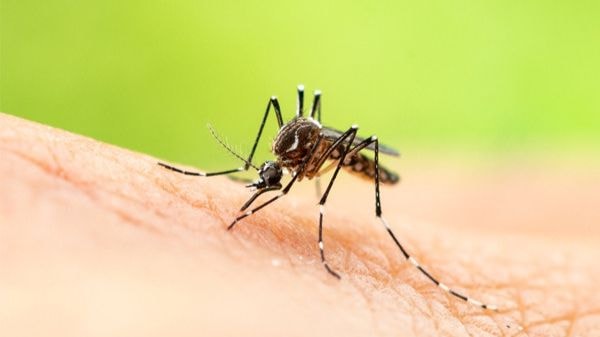Why some people get bitten by mosquitoes a lot
Human body odor can attract mosquitoes from a distance of 100 meters.
While some people are alwaysmosquito bites, others have no trouble with the insect. Scientists have now solved the question of why some people attract mosquitoes and others do not.
According to new research published in the journalCurrent Biology, body odor will turn you into a mosquito magnet. The small insects can smell human odor from 100 meters away.
The analysis was based on the African malaria mosquito, Anopheles gambiae, which was released in an outdoor area the size of an ice rink in Zambia. “This is the largest system in the world to assess mosquito odor preferences,” said Dr. Diego Giraldo.
The team from Johns Hopkins University (USA) released 200 hungry mosquitoes each night to observe how often they landed on 35 degrees Celsius heating pads, simulating human skin, placed at regular intervals. The body odor was a more attractive lure than CO2, which is a sign that can attract mosquitoes.
 |
Illustration photo |
However, further testing showed that the 200 mosquitoes were also very picky eaters.
“Mosquitoes hunt in the hours before and after midnight. They follow human scent and typically bite between 10pm and 2am. We wanted to assess the olfactory preferences of mosquitoes during their peak activity period when they are out and about, and also assess the scents from humans sleeping during that time,” said Dr Conor McMeniman.
Scientists have identified 40 chemicals that humans emit at varying levels.
“We don’t yet know exactly what element of skin secretions, microbial metabolites or emissions is causing this. We hope to find that out in the coming years,” says Dr Stephanie Rankin-Turner.
According toExpress, mosquito attractants excrete a lot of carboxylic acids produced by bacteria on their skin.
Meanwhile, a volunteer with a different odor attracted far fewer mosquitoes. He emitted three times as much eucalyptol, a plant compound found in oils, herbs, and spices. The increased levels may be related to diet, but the authors are not sure.
They hope the research will lead to the development of more effective mosquito repellants.


.jpg)


.png)
.png)

